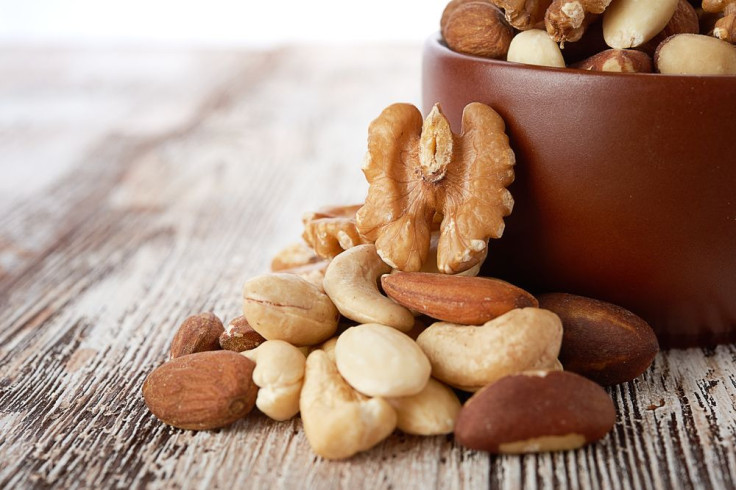Eat Cashews, Peanuts, Macadamia Nuts, Or Pecans: All Are Good For You

Yesterday, The New York Times sparked a great deal of interest when it limped across the finish line and staidly reported what others have been saying for years: Nuts are nutritious and good for you.
The Times article cited several large-scale studies to make its point. The Nurses’ Health Study and the Health Professionals Follow-Up Study, combined, surveyed over 100,000 people and found the more nuts people ate, the lower their risk of premature death. Noting these two studies too narrowly focus on educated, better off, primarily white Americans — and these factors could certainly skew the results — The Times also referred to another study which included more than 200,000 men and women living in Shanghai and the Southwest United States. Turns out, results of that study indicated the greater the proportion of nuts in a person’s diet, the lower their rates of death from all causes, especially heart disease and stroke.
This is all good, but for nut fans everywhere, it’s hardly news. Since time immemorial, Jack LaLanne preached the gospel of nuts, telling everyone he met they were nutritious and healthy and despite erroneous reports that they might be constipating or fattening. As to the latter claim, while nuts do have a high fat content, nut-eaters tend to be slimmer than their nut-avoiding counterparts, generally speaking. Most likely this is due to the fact that unsalted nuts — the most healthy choice — make a much better snack options than chips, say, or sugary foods like donuts, or anything else that might be heavily processed with unneeded dollops of great-tasting sugar and salt.
While we’re speaking of scientific studies touting the benefits of nuts, let’s add to the list with one more: this one conducted by an international team of researchers found nut consumption leads to a significant reduction in systolic blood pressure for people without type 2 diabetes, while mixed nuts and especially pistachios reduced diastolic blood pressure as well. High blood pressure, sometimes referred to as “the silent killer,” has no symptoms in many instances yet secretly it is damaging arteries, the heart, and other organs.
Of course, the Mediterranean Diet suggests you add nuts to your daily fare. Nuts are high in fat, but most of the fat is healthy and though they generally are high in calories, most people feel full after just a handful and tend to not over-stuff. Perhaps because of this promotion of nuts, the Mediterranean Diet has been shown to reduce the risk of heart disease. According to the Mayo Clinic, analysis of 1.5 million healthy adults who followed a Mediterranean Diet showed reduced rates of death from heart disease and cancer, and reduced incidence of Alzheimer's and Parkinson's.
It must be noted that nut allergies may be life-threatening for some people, so if you are in the position of sharing food with people you don’t know well, you need to inform them if your contribution to a meal contains any nuts. This is especially important with children. Though only four to six percent of children in the United States suffer food allergies — and though nuts rank below milk on the list of top allergies — any minute intake of nuts could be life-threatening to some.
In the end, this reminder of a nutritious and delicious food available and healthy for most people at a reasonable price is welcome. Too often nuts are featured in supporting roles, as snacks or tucked in recipes, but they play the lead admirably. Hey, peanut butter and jelly has been a lunchtime classic for what, decades? Nuts are comfort food, nuts are healthy, nuts are good for you.



























